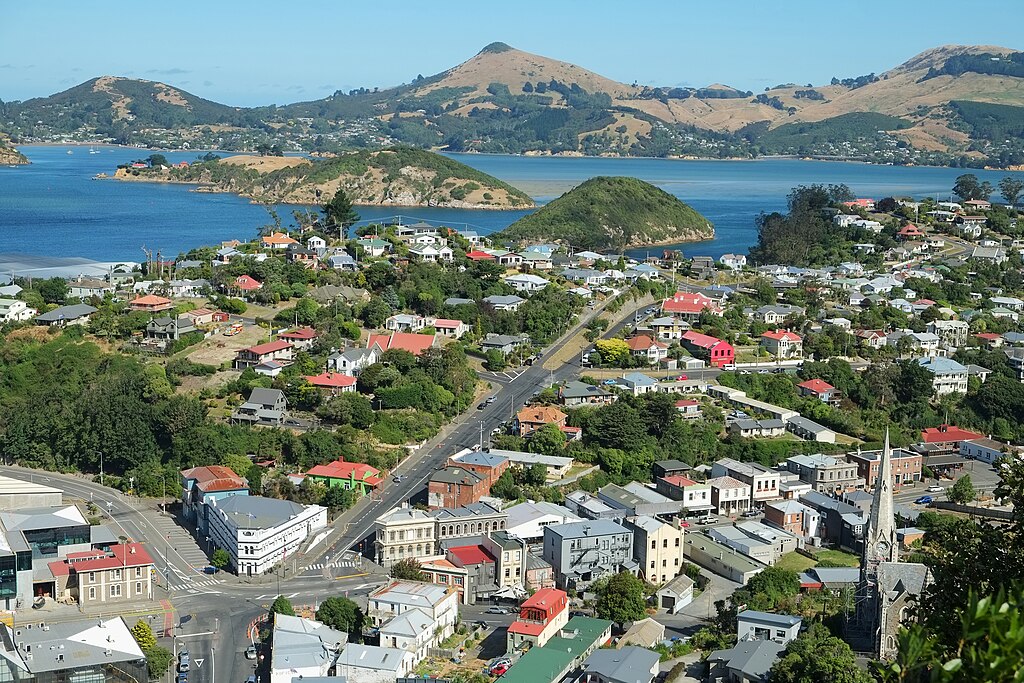
Introduction: Connecting Dunedin to the World
Port Chalmers, situated on the shores of Otago Harbour, serves as a historic maritime gateway connecting Dunedin to the world. With its rich history, strategic location, and bustling waterfront, Port Chalmers plays a vital role in facilitating trade, commerce, and maritime activity in the region.
Historical Significance
Port Chalmers holds a significant place in New Zealand’s maritime history, dating back to the early days of European settlement in the 19th century. Named after Dr. Thomas Chalmers, a prominent Scottish Presbyterian minister, the port quickly became a bustling hub of activity, serving as a crucial point of entry for immigrants, goods, and supplies bound for Dunedin and the wider Otago region.
Key Features and Infrastructure
Port Chalmers boasts a range of key features and infrastructure to support its maritime operations:
- Wharves and Berths: The port is equipped with a network of wharves and berths capable of accommodating vessels of various sizes, including cargo ships, container vessels, and cruise liners.
- Cargo Handling Facilities: State-of-the-art cargo handling equipment, including cranes, forklifts, and conveyor systems, streamline the loading and unloading of goods, ensuring efficient operations.
- Passenger Terminal: Port Chalmers serves as a gateway for cruise ships visiting Dunedin, with a modern passenger terminal providing amenities and services for travelers disembarking to explore the city and its surroundings.
Maritime Services
Port Chalmers offers a range of maritime services to support shipping companies, vessel operators, and logistics providers:
- Container Handling: The port handles containerized cargo, facilitating the efficient transport of goods to and from Dunedin and international markets.
- Bulk Cargo Operations: Bulk cargo such as grain, timber, and petroleum products are handled at Port Chalmers, leveraging the port’s specialized facilities and expertise.
- Ferry Services: The port serves as a departure point for ferry services connecting Dunedin to nearby destinations, including the Otago Peninsula and Stewart Island.
Community Engagement
Port Chalmers is deeply integrated into the local community, contributing to economic development, cultural vibrancy, and social cohesion:
- Local Businesses: The port supports a range of local businesses, including marine services, hospitality establishments, and retail outlets, providing employment opportunities and driving economic activity in the area.
- Cultural Events: Port Chalmers hosts a variety of cultural events and festivals throughout the year, celebrating its maritime heritage and fostering community pride and engagement.
Environmental Stewardship
As stewards of the marine environment, Port Chalmers is committed to sustainable practices and environmental responsibility:
- Environmental Management: The port implements measures to minimize its environmental impact, including waste management programs, pollution control measures, and habitat restoration initiatives.
- Biodiversity Conservation: Port Chalmers works to protect and preserve the ecological integrity of Otago Harbour, collaborating with local authorities and environmental organizations to safeguard marine habitats and species.
Conclusion: A Maritime Legacy in Motion
In conclusion, Dunedin Port Chalmers stands as a testament to the enduring legacy of maritime trade and commerce in New Zealand’s South Island. With its rich history, strategic importance, and commitment to sustainability, the port continues to serve as a vital lifeline connecting Dunedin to the world. As Port Chalmers navigates the challenges and opportunities of the 21st century, it remains a beacon of maritime excellence and a symbol of Dunedin’s proud maritime heritage.